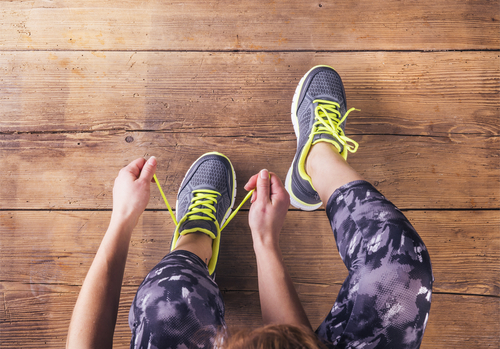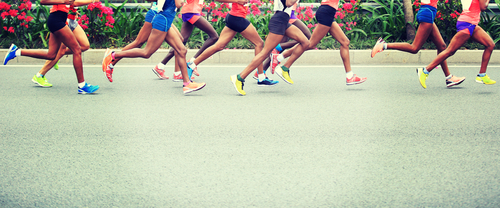
The difficulty with trying to avoid overtraining is that there are no hard and fast rules. How much is “too much”? Well, that really varies from person to person.
All we can do, if we are increasing our volume of training, is watch out for the signs of overtraining and rest/adjust volume accordingly.
The signs of overtraining are as follows:
- Recurrent injuries
- Fatigue
- Irritability
- Decline in performance
- Persistant stiffness/soreness
2. Weakness
Weakness in one muscle group may force another muscle group to overwork and can lead to pain. A pattern we see quite often is where there is relative weakness of the gluteal muscles. This can often lead to lower back pain or tightness, recurrent hamstring tightness or recurrent calf tightness or strain. These muscle groups are attempting to compensate for the weakness in the glutes and are themselves then overworking. Rather than treating the symptom of the tight calf however, you would be better served to address the source of the weakness to prevent recurrence of the same problems. Incorporating some strengthening exercises into your training regime is recommended for all runners. Getting stronger will not only help to prevent injury but can improve your running speed and endurance to. A full body strengthenng program is recommended. However, gluteal strengthening is paramount.
3. Flexibility
Tightness in the hip flexors (the front of the hip) is very common in today’s world, particularly amongst office workers or those who drive a lot. Tight hip flexors can inhibit the gluteal muscles from doing their usual job of driving the leg backwards and propel you forward. When we are unable to extend our hips, we generally compensate by extending our lower back. This can lead to overactivity of the musculature of the lower back and cause tightness and pain which may present throughout or towards the end of your run. Similar to the scenario above, we must focus our efforts on improving the root cause i.e. hip mobility rather than continuing to merely stretch out our tight lower back.

4. Running form
Like any other sport, running is a skill. Sometimes, a runner (usually a new runner) simply has poor technique. The good news is that running technique can be worked on and improved.
Below are some simple tips to optimise your running from:
- Running posture – aim to maintain a straight upper torso, with no over-arching of the lower back.
- Aim to strike the ground with mid or forefoot – this can reduce impact and prevent over striding which can cause injury.
- Consciously attempt to land more softly/quietly on the ground.
- Avoid over-striding – the foot should strike the ground as close to the body as possible, not out in front.

Physiotherapy – how can it help?
Running is a highly repetitive motion. Even an amateur runner will repeat the same motion thousands and thousands of times when out on a run. Therefore, even if we have just a minor issue with running mechanics, if we have a mild weakness or tightness, even if we are wearing the wrong shoes – the cumulative effect of this small issue multiplied by thousands and thousands of strides can lead to injury.
This “small issue” may not be obvious to the untrained eye and this is where your Chartered Physiotherapist comes in. At Clonee Physiotherapy, we will perform an assessment to identify any biomechanical issues or muscle imbalances. Where appropriate we will also analyse your running form and inspect your footwear to advise on how these may be improved.
Following assessment, your physiotherapist will outline a treatment plan. This may involve hands-on treatment, a rehabilitation program or most often a combination of both.
If you are suffering from any of the issues mentioned above you may benefit from an appointment with one of our Chartered Physiotherapists.
Call us on (01) 825 2623 or email info@cloneephysio.ie. Alternatively, you can book an appointment by clicking the button below.

